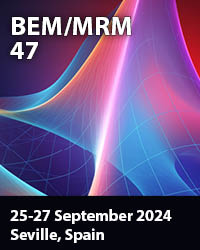Fast Calculation Of The Dimensioning Factors Of The Railway Power Supply System
Price
Free (open access)
Transaction
Volume
46
Pages
11
Published
2007
Size
617 kb
Paper DOI
10.2495/CMEM070091
Copyright
WIT Press
Author(s)
L. Abrahamsson & L. S¨oder
Abstract
Because of environmental and economical reasons, in Sweden and the rest of Europe, both personal and goods transports on railway are increasing. Therefore great railway infrastructure investments are expected to come. An important part of this infrastructure is the railway power supply system. Exactly how much, when and where the traffic will increase is not known for sure. This means investment planning for an uncertain future. The more uncertain parameters, such as traffic density and weight of trains, and the further future considered, the greater the inevitable amount of cases that have to be considered. When doing simulations concerning a tremendous amount of cases, each part of the simulation model has to be computationally fast – in real life this means approximations. The two most important issues to estimate given a certain power system configuration, when planning for an electric traction system, are the energy consumption of the grid and the train delays that a too weak system would cause. In this paper, some modeling suggestions of the energy consumption and the maximal train velocities are presented. Two linear, and one nonlinear model are presented and compared. The comparisons regard both computer speed and representability. The independent variables of these models are a selection of parameters describing the power system, i.e.: power system technology used on each section, and traffic intensity. Keywords: railway, traction system, power supply, energy consumption. 1 Introduction During the last decades, the railway has in many countries experienced a renaissance. The main reasons for the expansion of the railway are environmental and economical. This, in turn, has increased the interest in railway grid research.
Keywords
railway, traction system, power supply, energy consumption.





